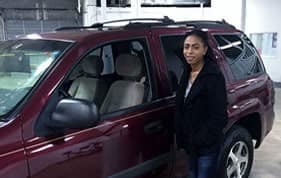Parents’ Car Ownership Boosts Healthcare for Kids
February 4, 2016
Without a private vehicle, scheduling and keeping a medical appointment can be difficult. A working person may have to choose between medical care and missing work. The difficulty stems from the limited nature of the public transportation system and the possibility of a bus or train running late.
Low-income families often are unable to attend work or school, take the time out to visit the doctor, and return to their responsibilities. Low-income families without a private vehicle frequently cite inadequate transportation, a lack of time, and long commutes as reasons for neglecting medical treatment.
Limited access is the problem, and mobility is the answer.
When low-income families have access to a private car, the family is free to travel at-will and schedule appointments around times that are convenient to their needs. Donating cars to programs that support low-income families improves families’ overall quality of life by minimizing commutes and freeing time from their schedule to visit a doctor when needed.
Greater Healthcare Access
Nationally, lack of transportation is a known barrier to children receiving adequate healthcare and preventative services. A study by the Transportation Research Board of the National Academies found investing in new transportation services was cost-effective in the long run, because the need for emergency medical services would be reduced.
Ultimately, the goal to provide greater healthcare is resolved with improved access to transportation. While the government looks at bettering private or public transportation services, charities like Vehicles for Change consider giving families their own vehicle as the greatest way to resolve the mobility issue.
Donating cars to low-income families saves tax payers money, too. Without the ability to drive to a hospital, emergency medical transportation is necessary … even in cases of non-life threatening illnesses. When low-income families are unable to pay ambulance fees or hospital bills, tax payers subsidize the cost. Tax payers save money when low-income families have the freedom to visit a doctor for simple illnesses or drive themselves to the hospital in non-critical situations.
Results Shown by Vehicles for Change
In a 2011 survey by Vehicles for Change, based on the families who had received donated vehicles, it was found that 98% of families had used the donated car to take their children to the doctor and 87% had been able to participate in activities that improved their health … all made easy and accessible by vehicle ownership.
To learn more about donating cars and the incredible opportunities it provides to families in need, contact Vehicles for Change for more information.









